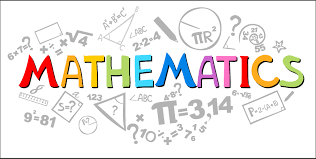Maths

The teaching of Mathematics at Bredbury St Mark’s reflects the main aims of the Primary Maths National Curriculum.
It is evident that there is a focus on:
- Mental recall of number facts
- Fluency and efficiency of methods used
- Reasoning and communicating understanding
It is evident that the depth of understanding is more important than coverage.
Children are encouraged to:
- Recall number facts
- Apply their knowledge of number facts
- Make decisions about the most efficient methods to use
- Explain their reasoning
- Articulate how they have completed a calculation
Power Maths
At St Mark’s, we adopt a maths scheme called Power Maths to support our teaching of maths. Power Maths is a resource that has been designed for UK schools based on research and extensive experience of teaching and learning around the world and here in the UK. It has been designed to support and challenge all pupils, and is built on the belief that EVERYONE can learn maths successfully.

Philosophy
The philosophy behind Power Maths is that being successful in maths is not just about rote-learning procedures and methods, but is instead about problem solving, thinking and discussing. Power Maths includes practice questions to help children develop fluent recall and develop their conceptual understanding. Power Maths uses growth mindset characters to prompt, encourage and question children. They spark curiosity, engage reasoning, secure understanding and deepen learning for all.

Unit Structure
Each unit begins with a unit starter, which introduces the learning context along with key mathematical vocabulary, structures and representations. A series of lessons are then scaffolded with Textbook and Practice Book activities. At the end of a unit, there is an end of unit summative assessment task which reveals which children have mastered the key concepts, which children have not and where their misconceptions lie.
Lesson Structure
Each lesson has a progression, with a central flow that draws the main learning into focus. There are different elements:
- Discover – each lesson begins with a problem to solve, often a real-life example, sometimes a puzzle or a game. These are engaging and fun, and designed to get all children thinking.
- Share – the class shares their ideas and compares different ways to solve the problem, explaining their reasoning with hands-on resources and drawings to make their ideas clear. Children are able to develop their understanding of the concept with input from the teacher.
- Think together – the next part of the lesson is a journey through the concept, digging deeper and deeper so that each child builds on secure foundations while being challenged to apply their understanding in different ways and with increasing independence.
- Practice – now children practice individually or in small groups, rehearsing and developing their skills to build fluency, understanding of the concept and confidence.
- Reflect – finally, children are prompted to reflect on and record their learning from each session and show how they have grasped the concept explored in the lesson.
Power Maths is based on a ‘small-steps’ approach, which means that the concepts are broken down. There are a range of fluency, reasoning and problem solving questions in each lesson that are designed to support the different needs and confidence levels within a class, while at the same time fostering a spirit of working and learning together. Each lesson includes a challenge question for those children who can delve deeper into a concept.
Children have access to resources such as counters, tens and ones, multilink and place value counters at all times to support their mathematical thinking when necessary.
 Assessment
Assessment
Formative Assessment
Formative assessment within lessons ensures that teachers are confident about what each child knows and where their misconceptions lie.
The Think together section will often reveal any confusions or insecurities. Adults can then provide support and enable children to move on.
Performance in Practice can be very informative, and so checking Practice Books and listening to responses both during and after practice can support with identifying misconceptions.
The Reflect section checks the depth of children’s understanding.
Summative Assessment
Each unit concludes with a summative check to support with quick and clear assessment of each child’s understanding, fluency, reasoning and problem-solving skills. In KS2 these checks also contains a SATs-style question to help children become familiar with answering this type of question.
End of term tests (both NFER and previous SATs paper) are also used to support teacher’s assessment.
Progression in Calculation Methods
An outline of the methods used for each operation (broadly determined by Key Stage) is detailed in the Power Maths Calculation Policy documents (See downloadables).
An overview of the content taught in each year group is available to download below.
Teaching Recall of Number Facts
At St Marks we have a whole school approach to teaching multiplication/division facts and number bonds. All classes have two explicitly taught recall of facts sessions each week, and a weekly test to enable children and teachers to track progress.
Children access Numbots and Times Tables Rock Stars regularly, an online programme designed to help children master their number bonds and times tables by recalling them at speed.

